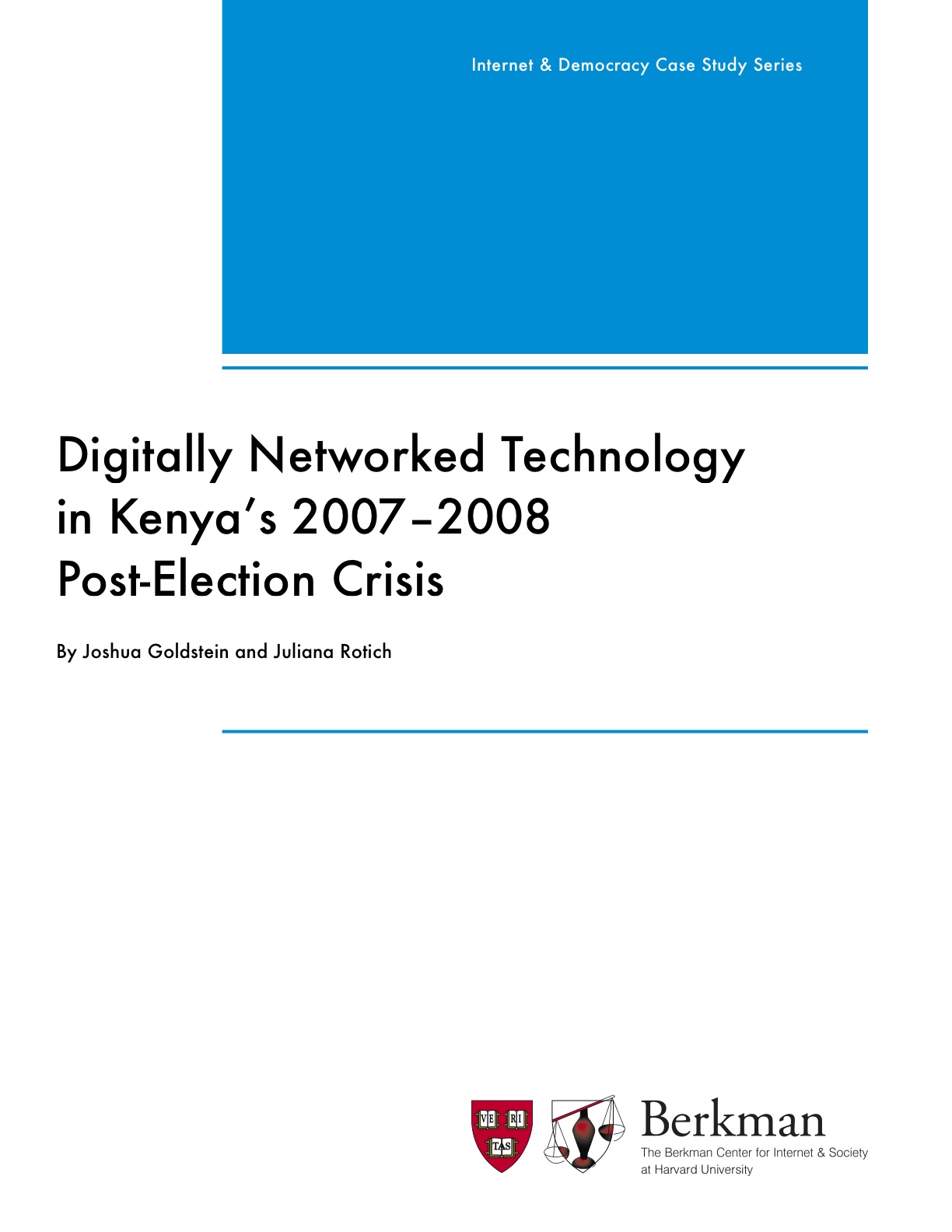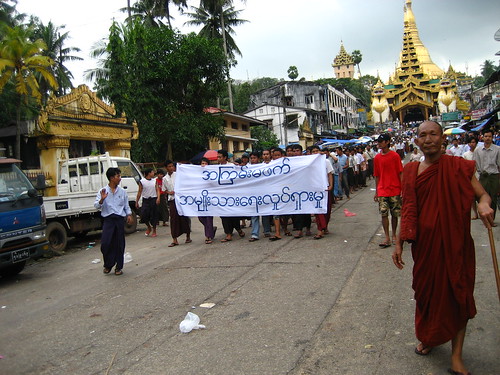
Updated with Conclusions Below:
Kicking off the release of a number of Internet and democracy publications this fall is the recently published paper by Robert Faris and Bruce Etling: “Madison and the Smart Mob: The Promise and Limitations of the Internet for Democracy.” From the Fletcher Forum summary:
“Color revolutions” in countries as disparate as Burma and the Ukraine demonstrate the potential of the Internet and text messaging for disseminating democratic ideals. These new technologies have no doubt revolutionized peer-to-peer relationships, but they remain limited in improving processes among government institutions.
This piece builds off our thinking about the Internet and democracy over the last year, and is informed by the ideas and work of many here at the Berkman Center including Faculty Directors John Palfrey (Born Digital), Yochai Benkler (Wealth of Networks) and Jonathan Zittrain (The Future of the Internet), among many other staff and fellows.
Check it out, and let us know what you think about it here on the blog.
UPDATE:
A reader asks that we post our conclusions. Here they are:
CONCLUSIONS
There is a growing number of anecdotes that suggest that the Internet and cell phones are having a significant impact on democracy. These tools seem to be changing public life substantially across social, economic, and political domains. This is a paradox, given that there is little evidence that these tools are having a systematic influence on political structures and processes. In this paper, we draw upon two distinct literatures to describe where the digital network technology is most likely to positively influence the transition to and persistence of democracy, and where the disruptive nature of digital networks is less likely to promote lasting democratic reform. We argue that the Internet is most effective in supporting political processes that draw upon widespread participation of citizens, such as elections, grassroots movements, and participatory media. This naturally follows from the sharp drop in the costs of disseminating information and online organizing.
However, consolidated democracies are composed of much more than effective involvement of citizens. The Internet does not have an obvious or significant impact on critical attributes such as civilian control of the military, a supreme constitution, protection of minorities, and freedom of religion. These intra-governmental processes—exactly what is most needed in many countries around the world—appear to be immune to the transformative power of digital tools.
There are linkages between vertical and horizontal processes that leave room for a degree of guarded optimism. Vertical accountability mechanisms have been shown to be powerful tools that can be leveraged to enhance governance and democracy. Moreover, digital tools that promote the development of strong civic organizations capable of improving governmental decision making could provide critically needed support for democracies around the world. Although we are witnessing a profusion of new online communities and organizations, it is unclear whether they can fill this crucial role.
Ultimately, vertical and horizontal governance are complementary approaches. As the example of Rodrigues and his Politicos do Brasil website demonstrates, the Internet allows citizens low-cost ways to collect, aggregate, index, and disseminate meaningful information due to preexisting horizontal institutional processes. For the Internet to reach its true potential, governments need to redouble their efforts to make information about horizontal processes publicly available. This includes public disclosures on a range of issues, from decisions about government spending to background documents related to the creation of law and policy.
We will continue to see headlines about the Internet’s impact on political transitions and future color revolutions. However, if the goal is lasting and meaningful improvements to the quality of democracy around the world—with all its benefits for decreased violence and improved economic, political, and social benefits for citizens—we need to ensure that the Internet can move democracies from “thin” electoral democracies to “thick” consolidated ones. Otherwise, we will continue to be disappointed with the failure of new democracies to grow the roots necessary to prevent backsliding into illiberal democracy and autocracy.






 Click Here
Click Here